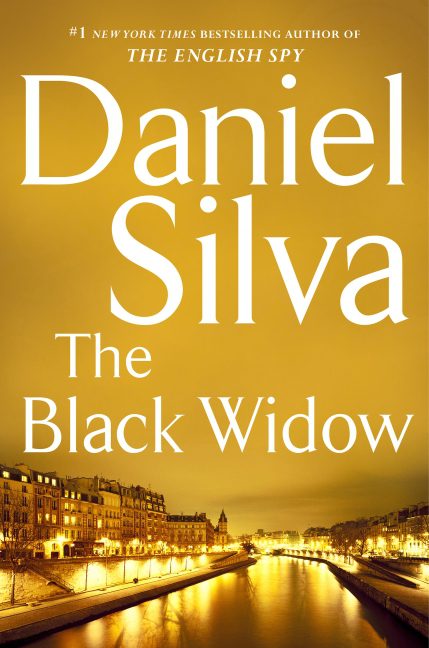Silva’s ‘Black Widow’ and ‘House of Spies’
By • November 6, 2017 0 1080

Lawyers, cops, private eyes, ex-cops, even lone-wolf former military policemen roaring across America as in the Jack Reacher books — all these characters populate the bookish landscape of, for want of a better word, the thriller genre in the popular fiction book trade.
There’s John Grisham’s still amazingly popular legal thrillers, often made into slick, star-laden Hollywood films that do not feature a caped comic book hero. There’s James Patterson, king of factory crime fiction, who seems to write about a dozen books with short chapters a year, often with the help of co-authors.
There’s still the old reliable Michael Connolly, the veteran former Los Angeles crime reporter, who now has three running characters: a retired cop named Hieronymous Bosch, a lawyer who works out of his Lincoln automobile and a female hero. James Lee Burke, is still writing atmospheric novels featuring his hero, Dave Robicheaux, who metes out rough justice in New Orleans. David Baldacci, a Virginian, is also one of the top producer of agency (CIA, FBI) thrillers.
There remains the spy game, with its time-honored history of the Eric Amblers, the Len Deightons and, still and always, John le Carré. But the game is different. Le Carré was a standout chronicler of the Cold War antics of spies among the superpowers, the United States and the Soviet Union. He still writes, and he is, no question, the premiere novelist of intrigue, having adapted with expertise and nuance to the dangerous world of terrorists and their bigger-nation backers and meddlers, as well as their pursuers.
This is the age of bombs, explosions, ISIS, Osama bin Laden and wars that are secret and full of elite units battling in Africa, Indonesia and the Middle East. It’s a scary world to readers who in real life have to worry about their own phones and devices being hacked, about the suspicious truck or suitcase on the train or, well, everything and everywhere — including going to a concert or a restaurant or riding a train, a plane, even a bicycle.
Even in such a fertile field of terror, one of the best is the American writer and veteran Middle East correspondent Daniel Silva, who imagines things we’ve all had nightmares about.
He’s got an unusual hero too: an Israeli secret agent, now the country’s (fictional) intelligence head, Gabriel Allon, who has doubled as a professional restorer of classical art, giving him a secure cover for his Israel agent/avenger job.
Allon’s dual identity, if you will, let’s a reader get a dose of art education. He’s often fouin Rome and in museums all over the world — amid heart-stopping spy and terrorist plots.
Silva has written 20 books, most of which have focused on the derring-do of Allon, including his last two — “The Black Widow,” now in paperback, and “House of Spies” — books which run at breakneck speed, are intelligently and stylishly written, are thoroughly researched and ought to scare the locals out of their minds.
“The Black Widow” features an ISIS terrorist villain with big ambitions of the type that occurred in London, Paris and Belgium, attacks on soft targets that panicked major cities. His name is Saladin, and after high-casualty and shocking attacks in London, his eye is on the United States. It’s up to Allon to foil his plans, and he plants a female agent in Saladin’s Syrian camp.
Saladin marks Washington, D.C., targets to devastating effect in “The Black Widow.” Just think of some obvious targets like a cultural center, a memorial and a very popular Georgetown restaurant.
“The House of Spies” focuses on revenge and an elaborate, multi-agency plan to catch up with Saladin. the book has its own thrills with a different flavor. Both books — all of Silva’s books — are as up to the minute as the latest sound of a car bomb exploding somewhere in the world.

